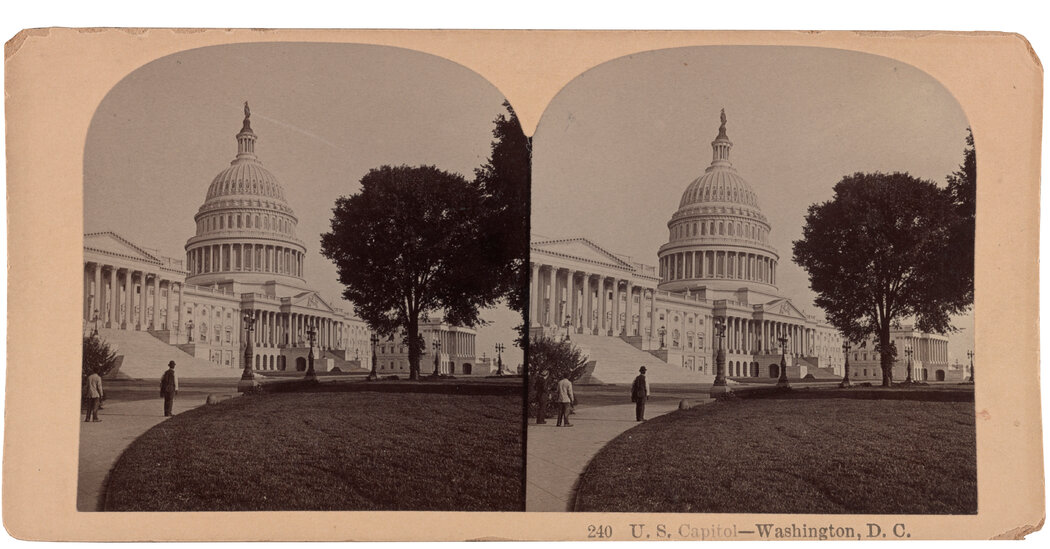It is sad, depressing and enraging to watch as the Senate refuses to defend voting rights, largely those of Black and brown people.
This rue-the-day moment is also a déjà vu moment. As a country, we have been here before, and it ended in about 70 years of brutally effective suppression of Black voters during the Jim Crow era. There was a democracy in America, a white one. African Americans and some other nonwhite Americans simply weren’t part of it.
It didn’t have to be this way. The courts could have stopped Southern states from implementing Jim Crow, but they didn’t. Congress could have stepped in, but it, too, failed to act, refusing to protect Black people and their access to the ballot.
As Michael Waldman, president of Brennan Center for Justice at New York University, writes in his brilliant book, “The Fight to Vote,” Republicans — the liberal party at that time — took control of the presidency and Congress, still committed to securing the right to vote for all citizens, including Black ones.
As Waldman wrote:
Then, in 1890, Boston Brahmin congressman Henry Cabot Lodge proposed legislation to federally supervise Southern elections, aimed at securing equal voting rights. Opponents dubbed the mild measure the “Lodge Force Bill” and panicked. The bill passed the House, but a thirty-three-day filibuster blocked it in the Senate. This was the first successful Southern filibuster of a federal civil rights bill: a cherished tradition begins.
And yet, as if blind to history, or in eager desire to repeat it, here we are again. The mustaches and dresses have less volume, but the racism carries the same venom.
It is important to be reminded of how that first civil rights filibuster unfolded, as well as the lead up to the fight, because the similarities today are eerie.
The year 1890 was 13 years after Reconstruction was allowed to fail, paving the way for Democrats, the conservatives then, to actively suppress Black voters in Southern states. And it was in 1890 that Mississippi became one of the first states to call a constitutional convention to write voter suppression into its DNA. Other Southern states would soon follow Mississippi’s example.
The Lodge Force Bill could have stopped them, but it faced strong opposition from Democrats in Congress, and not even all Republicans supported the bill.
That year, Democrats in North Carolina even included a plank opposing the legislation in their official party platform:
“We likewise denounce the iniquitous Lodge Force bill, whose purpose is to establish a second period of reconstruction in the Southern States, to subvert the wishes of our people and influence race antagonism and sectional animosities.”
After the bill passed the House, it encountered opposition in the Senate, and Senate Republicans eventually rewrote the bill, according to The Times, as “a much milder measure, something to which no reasonable person could object.”
While some liberals objected to the rewrite, saying the life of the original bill had been “amended out of it,” The Times disagreed, writing that the Senate bill was just as strong as the House one, only shorter. As The Times put it: “The difference between the two bills might, perhaps, best be stated by saying that Senator [George] Hoar has edited the Lodge bill and made it more compact and velvety.”
It should be noted that The Times’s coverage of the bill was not exemplary. It’s riddled with derisive framing. One article began: “Senators have abandoned all attempts to have that obnoxious measure taken up during the present session of Congress.”
Consideration of the bill dragged on into 1891, when William Pitt Kellogg, a former governor of Louisiana and a strong supporter of African American voters, chastised President Benjamin Harrison in a statement for at first not being strongly in favor of nationally supervised elections and only fully endorsing them later.
As Kellogg pointed out, Harrison had said in his Inaugural Address that some men in the South “would not find it difficult, by friendly instruction and cooperation, to make the Black man their efficient and safe ally.”
According to Kellogg, Harrison was so interested in attracting white supporters from the South that his administration “openly proposed to ignore the colored voter on committees and delegations, as in the party organizations and generally in appointments to office, and push to the front only white men, trusting to the loyalty of the colored voters to stand by the Republican Party, as they had always done in the past.”
Harrison didn’t fully engage on the election bill as it made its way through Congress. It was much later, after a tariff bill was in trouble and he began to be worried about losses in the next election, that, as Kellogg put it, “the President formulated his message to Congress for the first time openly, strongly, and unqualifiedly urging the passage of the Elections bill. Selfish interest invoked action.”
It was already too late for the president to have the influence on the debate that the office of the presidency affords.
Kellogg concluded that “the selfish, narrow policy of the administration” had “once more run upon a political sandbar.”
The racists won and Black voters lost because the party they supported and considered their friends did not fully mobilize to defend them from the party that sought to oppress them.
Switch a few names and dates, and this story could read like today’s news. The great tragedy is that, in spirit, it is today’s news.
The Times is committed to publishing a diversity of letters to the editor. We’d like to hear what you think about this or any of our articles. Here are some tips. And here’s our email: letters@nytimes.com.
Follow The New York Times Opinion section on Facebook and Twitter (@NYTopinion), and Instagram.



























